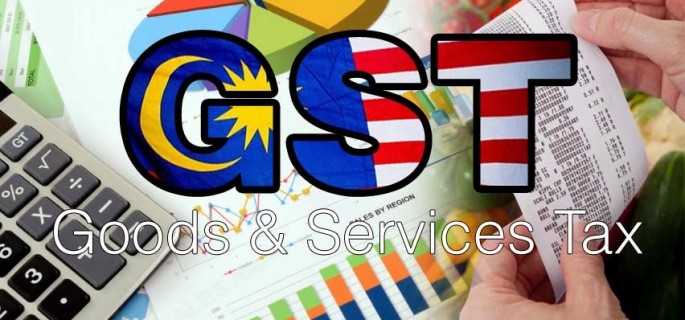Stay Clear Of Usual Blunders in Singapore GST Registration for Your Organization
Stay Clear Of Usual Blunders in Singapore GST Registration for Your Organization
Blog Article
Browsing the Complexities of GST Registration: Specialist Tips and Best Practices for Easier Conformity
From deciphering registration needs to using technical devices for structured procedures, the trip in the direction of smoother GST conformity is complex and nuanced. Keep tuned to discover crucial strategies and insights that can assist services guide with the intricacies of GST registration with skill and self-confidence.
Recognizing GST Enrollment Demands
.jpg)
Along with turn over thresholds, companies taking part in interstate sales or offering taxed solutions may also be called for to sign up for GST, even if their turn over is below the prescribed restriction (Singapore GST Registration). Understanding these limits and demands is necessary to avoid fines and guarantee smooth operations within the lawful framework
In addition, organizations must collect and prepare the required paperwork, such as proof of identity, address, business incorporation, and savings account information, before launching the GST registration procedure. Falling short to give precise details or satisfy the enrollment due dates can cause fines or various other legal effects. Companies need to remain informed concerning the specific GST registration demands suitable to their operations to preserve compliance and stay clear of prospective issues.
Organizing Crucial Paperwork
Services embarking on the GST enrollment procedure need to diligently compile and arrange the vital documents needed for entry. The essential documents generally needed for GST enrollment include proof of service enrollment or identification, address and incorporation evidence of the organization proprietors or partners, savings account details, evidence of primary business, and permission types. Making sure that these papers are conveniently offered and organized can improve the registration process and prevent rejections or hold-ups.
To successfully arrange essential documents, organizations need to develop a central system for storing and classifying the required paperwork (Singapore GST Registration). Making use of electronic storage options can aid preserve easy accessibility and make certain that papers are safely stored. In addition, establishing a checklist of all required documents can act as a useful device to track what has been collected and what is still needed for entry

Leveraging Technology for Performance
Enhancing functional effectiveness via technical integration is paramount for contemporary organizations browsing the complexities of GST registration. One of the crucial ways modern technology can help in GST registration is via the use of automated software program services.
Additionally, innovation can promote seamless communication with tax obligation authorities. On-line sites and interaction tools allow businesses to send records, fix questions, and receive updates in an extra reliable manner. This not only speeds up the enrollment process but likewise assists in keeping transparent and reliable interaction with the pertinent authorities.
Furthermore, cloud-based storage options offer a safe system for organizations to store and access their monetary information, ensuring conformity with GST record-keeping demands. By systematizing information storage space and automating procedures, businesses can enhance their overall effectiveness and precision in GST registration procedures.
Proactive Compliance Monitoring

To make sure reliable positive compliance surveillance, services should establish robust inner controls, conduct regular audits, and leverage automation devices for real-time tracking of GST transactions. Regular training sessions for employees on GST conformity needs can also help in developing a culture of conformity within the organization. Additionally, engaging with tax experts or experts can provide beneficial understandings and guidance on browsing complex GST guidelines.
Engaging With Expert Specialists
Involving experienced tax consultants can significantly boost a firm's understanding and conformity with elaborate GST guidelines. Expert experts bring a riches of expertise and experience to the table, helping services browse the complexities of GST registration with simplicity. By leveraging their proficiency, companies can guarantee precise filings, lessen the threat of mistakes, and remain updated with the most recent regulative changes.
When engaging with expert specialists, it is important to select professionals with a strong record in GST conformity (Singapore GST Registration). Seek consultants who have a deep understanding of the appropriate regulations and laws, along with experience functioning with companies in your market. Efficient interaction is type in this collaboration, so ensure to plainly specify your expectations and establish regular touchpoints to talk about progress and attend to any kind of worries
Additionally, expert consultants can provide valuable insights and advice on optimizing your tax method, determining potential cost-saving possibilities, and streamlining your compliance procedures. On the whole, investing in professional consultancy services can go a lengthy means in ensuring smoother GST compliance and preventing expensive errors.
Conclusion
In conclusion, browsing the complexities of GST enrollment requires blog here a complete understanding of the demands, organization of necessary paperwork, leveraging modern technology for performance, positive compliance tracking, and interaction with professional consultants. By adhering to these finest practices, organizations can make certain smoother conformity with GST laws and prevent prospective charges or fines. It is important to remain notified, positive, and thorough in managing GST enrollment to preserve compliance and promote monetary honesty.
To guarantee compliance with tax obligation policies, businesses need to thoroughly comprehend the elaborate needs for GST registration. Item and Services Tax Obligation (GST) is a value-added tax imposed on many products and description solutions in a country, making it essential for businesses to register for GST to prevent lawful repercussions.In addition, businesses need to collect and prepare the necessary paperwork, such as proof of identification, address, service incorporation, and bank account details, before launching the GST registration process. Services need to stay informed regarding the specific GST registration requirements appropriate to their operations to preserve conformity and stay clear of prospective problems.
The crucial records generally required for GST enrollment consist of evidence of service registration or identification, address and unification proofs of the organization proprietors or partners, bank account information, evidence of primary location of business, and permission types.
Report this page